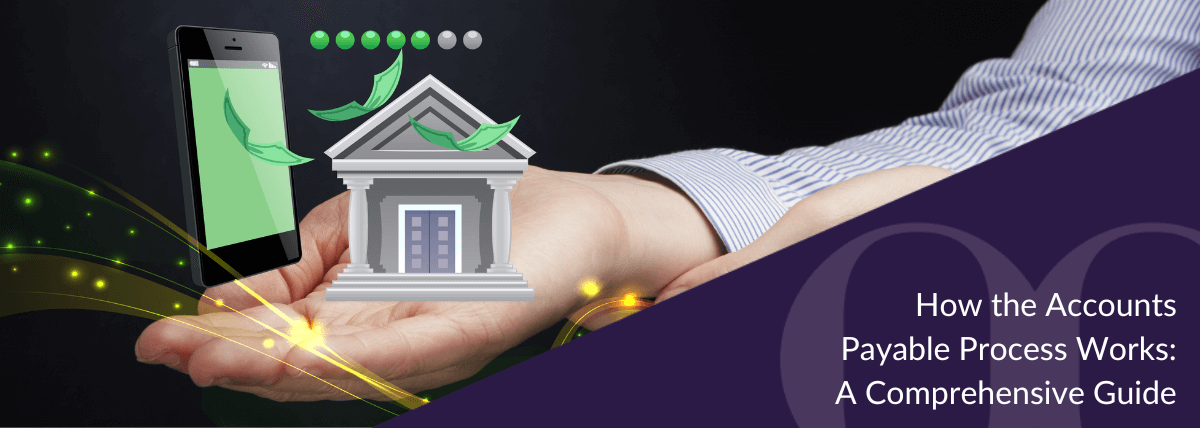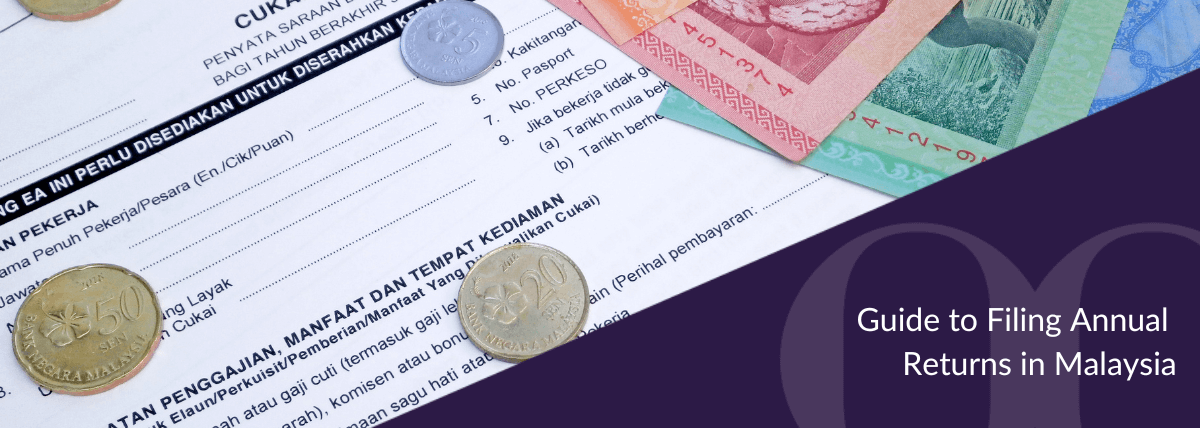4 Reasons why incorporating in Malaysia could be a wise decision
Over the last ten years, Malaysia has become a destination of choice for business expansion. The World Bank ranked Malaysia at a respectable 55th place out of 157 countries across the globe as the easiest place to do business. While the government continues to play its part in facilitating greater ease, there are geographical factors that help boost Malaysia’s chances as the next destination to launch your business expansion strategy.
The country is strategically located in the Asia Pacific Rim, at the centre, with numerous other ASEAN nations surrounding it. This means businesses in Malaysia can take advantage of and gain easy access to a substantial 667 million regional population1, which together boast a combined GDP of over US$3.3 trillion1.
If you are thinking of expanding your business into Malaysia, here are FOUR reasons why it would prove to be a wise choice.
01 It’s Quick, Easy, and Low-Cost to Incorporate
Comparatively, Malaysia is possibly one of the easiest places for businesses to incorporate. Malaysia’s efforts to reform—policy enhancements and procedural improvements—over the past few years have increased efficiencies and reduced the waiting time involved with registration and permit application processes. Registration of a new business takes 5-10 days, and employment permits for expatriates are processed within 5 working days. Find out the steps on How to register a company in Malaysia.
Operationally and financially, Malaysia has built a strong case for itself. It boasts one of the lowest start-up costs compared to the other Asia Pacific countries, as shown by its 17.5 days and 11.1% of income per capita2 required to start a business. This is largely driven by its low property rental rates, with an average gross rental yield of 5.16%3, and its generally low minimum wage.
Knight Frank currently estimates the supply of office space in Kuala Lumpur (KL) city is 58.33 million sq ft, followed by KL fringe with 30.31 million sq ft and Selangor with 26.09 million sq ft, which brings the total to 114.73 million sq ft4.
In addition to low office rental rates, businesses can operate economically because of Malaysia’s relatively low minimum wage, which sits at RM1,288.35 (US$275.235) per month.

02 You’ll Avoid Double Taxation for Your Business Expansion Strategy
In most countries, double taxation usually occurs when any taxpayer of a specific country engages in international business transactions. However, this is not the case for businesses in Malaysia. The country is a part of DTAs (Double Taxation Agreements) involving countries located in every continent of the world. This allows Malaysia to create an attractive tax environment where a greater international flow of investment, trade and financial activities, and technical knowledge are facilitated and exchanged.
These DTAs outline the treatment of income or profits earned outside Malaysia by Malaysian businesses and within Malaysia by foreign-owned businesses. On this note, companies in Malaysia are protected against the possibility of a singular income being subject to two countries’ taxes simultaneously. The double taxation agreement also provides taxpayers with certainty about their tax treatment. In the event of an absent DTA, businesses are still eligible for tax relief through the foreign tax credit.
For advisory on double taxation reduction, consider speaking with a professional tax consultant who can provide expert guidance on how to enhance your company’s tax savings.
03 The Locals are Ready to Buy
When shortlisting a country for your business expansion plans, qualifying your list of countries based on their economic strength is an excellent place to start. A country’s GDP is the best measure to assess its overall economic strength because it is closely connected with the country’s average consumer purchasing power. Malaysia’s total nominal GDP is expected to reach US$710 billion by 2030 and US$1 trillion by 20356, with a healthy growth rate of 4.0% – 4.5%7.
Malaysia’s strong GDP is attributed to the government’s effort to remain robust in the agriculture, construction, manufacturing, mining, and services industries. The theme of Budget 2024, “Reformasi Ekonomi, Memperkasa Rakyat8” (Economic Reform, Empowering People), focuses on three main objectives: improving governance and public delivery system, transforming the business and economic sectors, and enhancing the quality of life of the people. This budget, which is the largest in the nation’s history, also reaffirms the government’s dedication to fiscal reforms to overcome the dual challenges of a less robust global economic outlook and Malaysia’s financial constraints.
With such a reform-oriented and resilient budget, Malaysians’ incomes are improving, and depending on your type of business, you can benefit from a growing number of consumers who are able or willing to purchase low- to middle-market products and services readily.
04 The Local Government Supports Your International Expansion Strategy
Malaysia has been growing economically in tandem with global trends. In line with the adoption of Industrial Revolution 4.0 (IR4.0), it has introduced its own National 4IR Policy. This broad, overarching national policy drives coherence in transforming the socioeconomic development of the country through the ethical use of 4IR technologies, such as Artificial Intelligence, Blockchain, and the Internet of Things.
The National 4IR Policy aims to attract foreign investments by fostering a culture of innovation and digitalisation, enhancing the performance and productivity of local industries, and enabling Malaysia to join global value chains. The policy also offers incentives and support for foreign investors who adopt 4IR technologies and develop the human capital and infrastructure in Malaysia. By tapping into the opportunities of 4IR, Malaysia can position itself as a regional hub for advanced and knowledge-intensive industries and achieve its vision of becoming a high-income and inclusive nation by 2030.
While there are limited restrictions on foreign ownership in certain strategic sectors, the Malaysian government encourages the inflow of foreign investments. This is apparent in the incremental liberalisation of equity conditions by various government agencies and the broad range of attractive incentives to entice new foreign investments and promote local start-ups. These incentives range from generous tax exemptions and allowances to grants.
Depending on your business, you might even be eligible for specific grants and incentives aimed at supporting innovation or projects that contribute strategically to the country’s economy and industries. Having a good knowledge of these incentives and how they may apply to you will allow you to maximise your business potential and put you on the fast track to success. Here are 5 grants that might be helpful as you incorporate in Malaysia.
- Cradle Investment Programme 300 (CIP300) stands as a pre-seed initiative targeting aspiring entrepreneurs in sectors such as ICT and other technology fields. This program offers up to RM 300,000 to these startups looking to develop and promote their innovative services.
- MaGIC Global Accelerator Programme (MaGICGAP) is a three-month intensive programme that helps promising local and global mid-to-late stage start-ups with established product-market-fit to get investment. It is designed for start-ups that have launched a product with reasonable traction, as well as highly scalable ones carrying a growth potential business model. This programme is open to start-ups from various industries, such as creative and lifestyle, e-commerce, education, finance, healthcare, and smart cities.
- Technology Acquisition Fund (TAF) is a hybrid grant and loan scheme that assists eligible Malaysian companies in procuring foreign technologies and integrating them into their existing business and manufacturing activities. The fund aims to allow companies to accelerate their growth potential by acquiring new technology and improving their technological capabilities and production processes. This applies to businesses in the priority technology clusters identified by MOSTI, such as aerospace, medical devices, pharmaceuticals, advanced electronics, and renewable energy.
- Domestic Investment Strategic Fund is a matching grant designed to offer incentives to established companies within the manufacturing and services sectors, boasting a minimum of 60% Malaysian equity ownership. This fund supports and encourages reinvestments, encompassing activities such as expansion, modernisation, and diversification. Notably, it facilitates initiatives like training, R&D, outsourcing, international standards, and technology licensing or acquisition. The fund is accessible to businesses in priority sectors such as aerospace, food security, machinery and equipment, and services.
- Women Exporters Development Programme (WEDP) is a specialised export support program aimed at empowering women in the export industry. This three-year program is tailored to assist competitive and sustainable businesses led by women to foster the growth of product and service exports. To be eligible for this programme, the company must be women-owned, hold a majority stake (at least 51%) and hold key leadership positions as the CEO and/or Managing Director. This programme covers both merchandise and services trade across various industries.
The Malaysian government also has a dedicated agency, the Malaysian Investment Development Authority (“MIDA”), to help facilitate your international expansion strategy into the country. Besides the ease and low cost of incorporation, Malaysia also offers other advantages for businesses, including:
- Low corporate tax rates of 15%-24%9 depending on the company size and income
- New Companies Act 2016 simplifies the registration process and reduces the compliance burden for companies
Strategic location in the heart of the ASEAN Community, providing access to a large and diverse market of over 600 million people

Launch Your Business Expansion Plans in Malaysia with BoardRoom
So, if you were wondering if you should establish incorporation in Malaysia, here is our advice: you should. Malaysia is a promising destination for business expansion in the Asia Pacific region, offering a range of advantages for businesses across all industries. If you are looking for an international expansion strategy that can help you grow your business and achieve your goals, Malaysia might be the perfect option for you!
However, whilst incorporating a business in Malaysia may seem like a straightforward process, it can be fraught with challenges and risks. You may encounter common difficulties like obtaining the necessary permits, licenses, and approvals, opening a bank account, complying with local laws and regulations, and dealing with cultural and language barriers. These challenges can cause delays, errors, and frustrations and ultimately affect your business performance and reputation.
That is why you should always consult a team of dedicated experts who can guide you through the entire process of company incorporation in Malaysia. These professionals can assist you in your business expansion by leveraging Malaysia’s incentives and opportunities to their fullest extent while allowing you to have peace of mind, knowing that your company will remain compliant with local regulations. By doing so, you can ensure the best possible outcome for your business expansion plan and investment strategy.
Here is where BoardRoom can help
BoardRoom is the market leader in Malaysia for Corporate Services, as we command the majority of the market. Our affiliation with local regulators and government agencies such as the Malaysian Investment Development Authority (MIDA), local stock exchange Bursa Malaysia, Companies Commission of Malaysia, InvestKL, Malaysia Digital Economy Corporation (MDEC), etc., allows us to advise on the latest regulatory requirements and incentives accurately and swiftly put your business on a fuss-free journey towards success.
If you are looking to incorporate in Malaysia, or if you already have a business in Malaysia but are looking to outsource your administrative functions so you can focus on expanding your business, a full-suite corporate services provider offering end to end services can help you with:
- Setting up a company to establish a foothold in the region
- Company secretarial services to ensure corporate governance and compliance
- Setting up an efficient tax structure to optimise the available tax incentives
- Ensuring robust cash flow management with a reliable accounting team
- Setting up an Employee Share Planto attract and retain top talent
- Ensuring that your employee Payroll meets local regulatory requirements
Contact us today to find out how we can help you!
Source
- statista.com
- https://www.doingbusiness.org/
- https://www.globalpropertyguide.com/
- The Edge | Knight Frank Kuala Lumpur and Selangor Office Monitor 2Q2023: Klang Valley office market sees sustained, steady recovery
- https://www.statista.com/
- https://www.spglobal.com/
- https://www.nst.com.my/
- https://www.mof.gov.my/
- https://taxsummaries.pwc.com/




